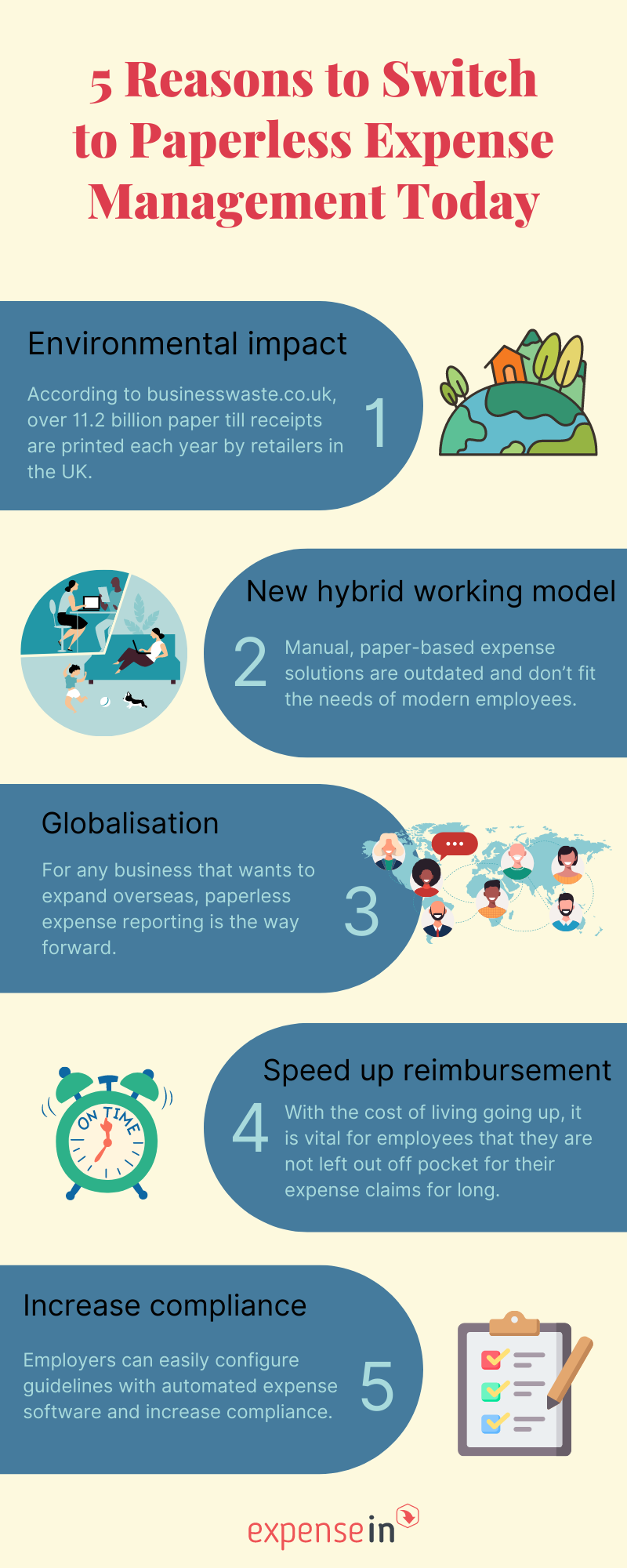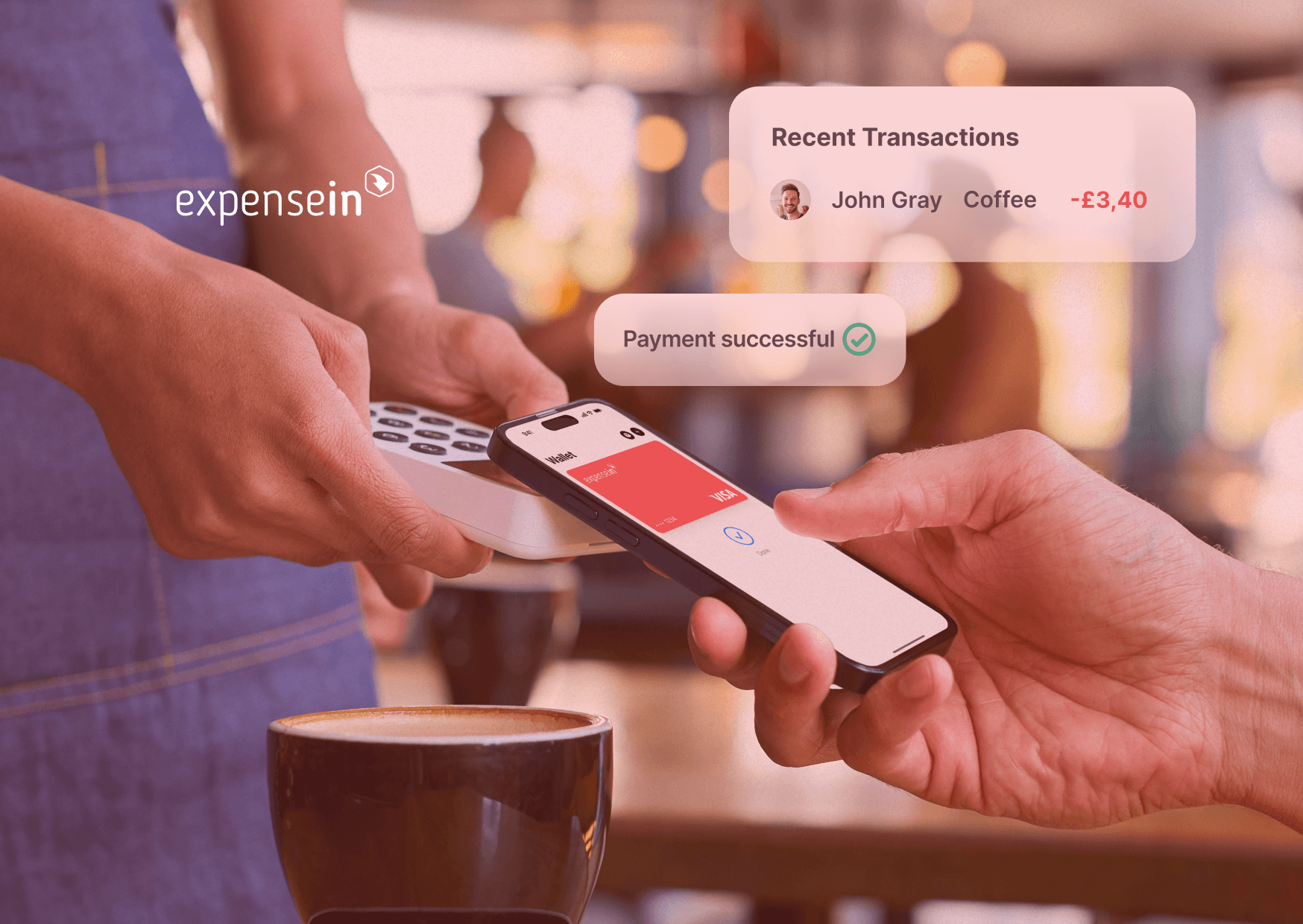With more businesses making a conscious effort to reduce the amount of paper they are using in their offices, this guide shares with you 5 reasons why paperless expense management is the way forward.
 Image: ©Kikkerdirk via canva.com
Image: ©Kikkerdirk via canva.com
1. Environmental Impact
Receipts have been around for a very long time. It is believed that the first receipts came in the form of clay tablets 5,000 years ago in Ancient Mesopotamia. The world has moved on since then and we all are very familiar with the printed receipts the cashier hands us at the till to confirm the purchase. According to businesswaste.co.uk, over 11.2 billion paper till receipts are printed each year by retailers in the UK. Hence, making the switch to paperless expense reporting is expected to have a positive impact on the environment.
2. New hybrid Working Model
One of the legacies of the global pandemic will be that it changed the way we work forever as it forced employers and employees to quickly adopt remote working practices and embrace new technologies in spring 2020. BBC reported that in 2020, 37% of people carried out at least some of their work from home and the trend is that the new norm is here to stay with nearly half of the UK professionals wanting to continue to work from home. Because of that, the introduction of paperless expense reporting is not only a recommendation, but a necessity for any business that would like to stay competitive. Manual, paper-based expense solutions are outdated and don’t fit the needs of modern employees. However, cloud-based solutions which allow employees to submit expense claims from anywhere can significantly simplify the expense management process. They are extremely cost-effective and remove the need for a costly IT infrastructure. A simple web browser on a smartphone, tablet or PC is all that is required.
3. Globalisation
Another reason why businesses should make the switch to paperless expense reporting is globalisation. Any business that wants to expand overseas or for businesses who already have an overseas presence, paperless expense reporting is the way forward.
For employees, it will remove the need to collect (and lose) piles of receipts or spend hours at the end of the month trying to remember what each receipt was for and make a long, laborious claim. For the finance department, paper handling is almost removed and a clear and up-to-date picture of expense outgoings is always available.
4. Speed Up Reimbursement
With the cost of living going up significantly, it is vital for employees that they are not left out off pocket for their expense claims for a long period of time. While the responsibility largely lies with the finance team to process employee expenses quickly, it’s also vital that employees fulfil their role and submit expenses in a timely fashion.
In a recent LinkedIn poll, we asked how employees submit expenses in their company. 7% of voters input expenses into a spreadsheet, 21% hand over the expense claim in person and 71% upload the expense receipt via an expense app.

5. Increase Compliance
Another reason why businesses should switch to paperless expense management is the increased compliance that such a system offers. Employers can easily configure guidelines within the software that regulate expense claims. From limiting the maximum claim value, to adjusting the requirements for the presence of a receipt, it’s easy to configure rules and apply them to groups within your business. Finding out which department is spending the most has never been easier.
Many paperless expense reporting systems offer HMRC compliant features as a default, which is especially relevant considering the government’s making tax digital scheme.

Final Thoughts
To recap, there are at least 5 good reasons to make the switch to paperless expense management today:
Environmental impact
New hybrid working model
Globalisation
Speed up reimbursement
Increase compliance
Rolling out a cloud-based software such as ExpenseIn, replaces time-consuming spreadsheets with automated features such as receipt scanning and automated expense policy enforcement to let employees submit expense claims within minutes. Plus, with a fast and flexible approval process, expenses can be reimbursed on-the-go.



